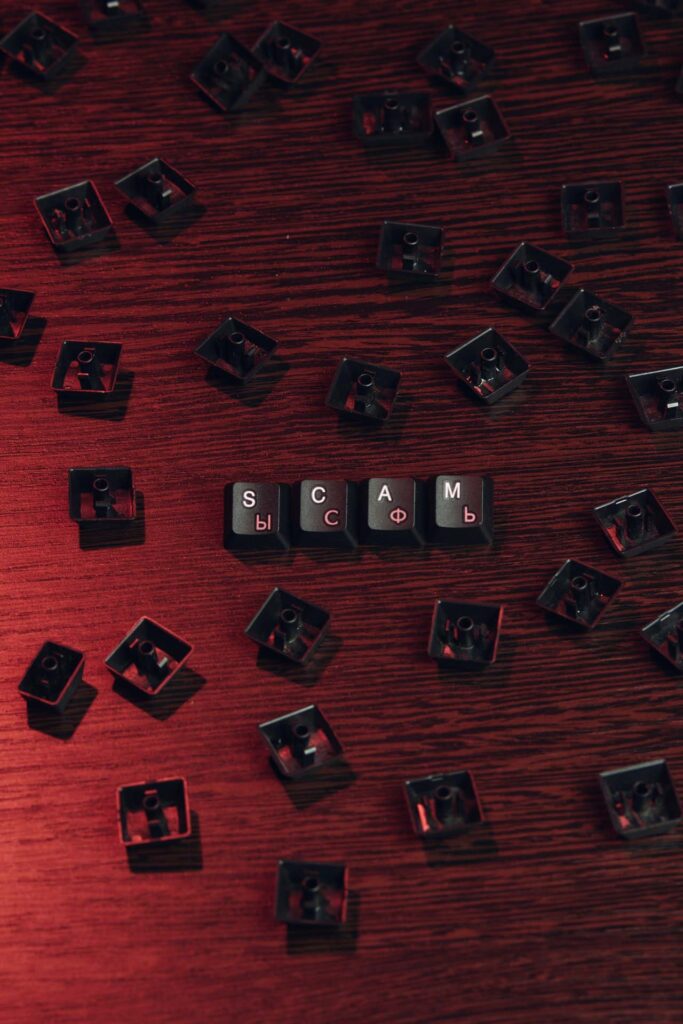Is the dark web dangerous? What are the dangers you may encounter in the dark web? If you have never surfed on the dark web, or if you are just starting, then this guide is for you. We will see what the dangers of the dark web really are, and how to avoid them safely.
Is the Dark Web Dangerous?
The short answer would be “not as much as people think it is, but it still comes with some dangers”. Specifically, there are two types of dangers you may encounter when browsing the dark web.
Technical Dangers of the Dark Web
The first set of risks and dangers relates to the technical nature of the dark web. The dark web is complex, as we will see in a second, and it can expose some vulnerabilities of your computer. To say it in other words, even oversimplifying, you risk getting viruses on your PC.
You find viruses of all kinds on the dark web, but most importantly trojan viruses: those that allow a hacker to gain full control of your device. Just like a bee going from flower to flower, the hacker can infect your PC that you use to go in the dark web, and then use that to “jump” to other PCs in your home Wi-Fi and infect them as well.
Of course, with this we don’t mean that as soon as you get onto the dark web you will get a virus. You need to be careful on what you do, and we will see more details about that later. Still, you need to be aware of this possibility.
Personal Dangers of the Dark Web
The good news is that it is unlikely someone will come knocking at your door to do you harm. However, that is only because hackers do not operate in that way. On the dark web, you need to be extremely careful about the information you disclose about yourself because you’ll never know how people use that information.
There are two types of information you disclose when you are online. The most obvious type is all the data you willingly provide, for example if you state your name in a chat, if you upload your profile picture on a social network, and so on. The second type, instead, is what happens under the hood, automatically as part of the Internet communication. This generally includes information about your operating system, your browser, and your IP address which also defines your approximate geographic location.
Hackers tend to use your personal data to violate our identity. If they gain access to your personal data, they may attempt to use any compromising picture they found to blackmail you, or they will just try to wipe out your bank account.
Additionally, you have the significat risk that people won’t deliver on what they promised on the dark web. If you buy something on the dark web, it most likely is a scam and you won’t get what you asked for.
How does the Dark Web Work?
Now we answered more or less “is the dark web dangerous?” and identified the potential types of dangers we will find there. Since it is dangerous to some extent, we need to protect ourselves. Before we are able to do that, we need to understand how the dark web works, at least at a high level. Once we clarify that, we will be able to address the full question “is the dark web dangerous, and how do I protect myself?”.
Dark Web vs. Deep Web
The websites that you see when searching on Google are just a part of the Internet. The entire Internet is called “deep web” because it is not easily accessible through search engines and even directly, and so it resembles the hidden part of an iceberg.
Any device connected to the Internet is part of the deep web, even your home computers. Corporate networks that have an internal storage of data (such as private servers) and that are connected to the Internet somehow are also part of the deep web.

The deep web is the totality of the Internet, and it is not easily accessible. This is in part because there is no “map” on how to navigate it or access one piece of information or another, but most importantly because most of its parts are protected, as they are not designed to be accessed remotely, unlike a normal website.
Since the deep web is the entirety of the Internet, it contains the “normal” web that you surf with Google, but it also contains the dark web. Dark web is more of a philosophical concept rather than a technical concept.
A widely accepted idea for dark web is a set of online resources accessible only to people who know about them, generally used for illegal or not-so-legit purposes. It is like a collection of secret places where you mostly get by invitation only (or you need to find out where they are, which is not easy), where some illegal deeds may happen.
If we consider the dark web in that sense, what happens there tends to be illegal. So, the dark web is not like a physical or virtual “well defined” space like Facebook maybe. You can create a post on Facebook and know it’s there. Instead, you can’t create any content on the “dark web”. You create content on a computer and expose it in the deep web, classifying it as part of the dark web or not is only philosophy.
Illegal does not necessarily mean selling arms or drugs or making scams. In some places, it may just mean eluding some Internet restrictions places by some authority or government.
Dark Web Nodes
In most Internet communication, you access directly what you are looking for. If you want to get cat videos on YouTube, you go to YouTube.com, and your PC establish a connection directly with YouTube. That’s not the way it works in the dark web.
For privacy reasons, the dark web works with a chain of nodes meant to anonymize you. Instead of connecting directly to whatever you are looking for, you connect to an intermediary node, which then connects to another intermediary node and so on, up until you reach an “exit node” which then makes a connection toward your real destination. The real destination does not see any communication with your computer, but only with the exit node.
With this chain of “passing the communication along” it’s hard to trace back to the originator of communication. Each additional node adds an extra layer of protection and anonymization. What are those nodes exactly? Other people surfing the dark web. By joining the dark web, they make their computer available to be either transit or exit node (this can be configured).
Each communication is assigned a random path of nodes to ensure tracking is even harder.
Accessing the Dark Web
Accessing the dark web is done through TOR, an open-source software that allows you to access and work with the nodes we described in the previous section. TOR is created and maintained by a nonprofit organization with the goal of fostering Internet privacy and giving everyone equal access to the Internet. Quite far from illicit or immoral purposes, isn’t it?
Download TOR from here if you want to access the Dark Web.
Is the Dark Web Dangerous, and How do I Protect Myself?
Okay, so the answer to “Is the dark web dangerous?” is “it can be, so be careful”. How can we be careful? How can you protect yourself on the dark web? Let’s list some common-sense steps you are better to follow.
Never provide your information
If may sound sill, but if you needed to ask “is the dark web dangerous?” maybe it is best to specify. Do not provide your information to anyone or to any system. Remember that you have no guarantee how a website on the dark web may use your information, so it is much safer to just not give any information.
If you need to register to something, use fake name and email addresses. In fact, it may be helpful to establish a name you want to have on the dark web, like a role play game. However, it is even better to use different names on different websites and change them often. Most importantly, never let people know that you use that identity on the dark web.

Say you are John Doe and you call yourself “Mr. X” on the deep web. If, on the normal web, on your Facebook page you post “Just surfing the dark web as Mr. X”, then a hacker can potentially search for “Mr. X” on the normal web and realize “ah-ha, he is John Doe”. Of course, this example is extreme and naïve, but it serves to exemplify the concept.
NEVER download anything
Is the dark web dangerous? If you download something from it, you can bet it is. Never download any file from the dark web, and if you happen to do, never execute them. This is the golden rule, never break it.
Any file can be a virus, and it can potentially break your system, encrypt it, or even steal your information.
Downloadable files are probably the most dangerous thing on the dark web, so avoid them at all costs.
Have an Antivirus
That is a little bit of a cliché, isn’t it? Of course, if you want to protect yourself after asking “is the dark web dangerous?”, it’s better that you have an antivirus. In this way, if by chance something attempts to attack your computer, trigger an unintended download, or anything malicious, your antivirus may detect it.
Of course, no antivirus will give you 100% protection – nothing will – but it is an extra layer of security. If you want to be safe, it’s better to have an antivirus. Period.
No need for a VPN
Most security platforms and even antivirus try to suggest buying a VPN service. That is convenient for them because you would need to incur in a monthly fee, and it is a type of service that can be helpful in some cases.
However, this is not true when surfing the dark web. In fact, the dark web already goes a long way to mask your identity, and you don’t need an additional layer to do that. It won’t be of much help. Of course, enabling a VPN will not cause any problem (except slowing you down a little), but it will not bring any benefit to you.
Is the Dark Web Dangerous? In a Nutshell
The dark web is a “philosophical” classification of some websites over the Internet that you can access with the TOR browser. Some of them may be illegal, illicit, or at least questionable. Thus, the dark web can be dangerous, but not as much as people think it is.
If you follow the precaution mentioned (never tell anyone your identity or share personal information, never download anything, and have an antivirus) you should be quite safe.
Since you are there, it is clear you are interested in hacking. Why don’t you hone your skills by learning how to hack IP addresses here?
